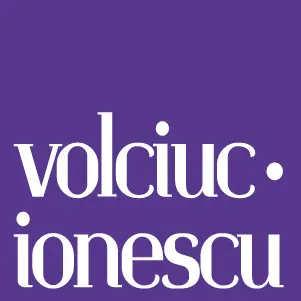In the context of the COVID-19 pandemics, the Romanian Government has introduced certain facilities for loans granted by credit institutions and non-banking financial institutions to certain categories of debtors under Government Emergency Ordinance no. 37/2020 (“GEO 37/2020”) as further detailed by its implementation norms set out under Government Decision no. 270/2020. Concurrently, on 3 April 2020, a Law on suspension of repayments of credits was approved by the Romanian Parliament (“Suspension Law”) and is awaiting promulgation by the Romanian President. However, on 7 April 2020, an unconstitutionality challenge was submitted to the Romanian Constitutional Court regarding such Suspension Law – more details on the Suspension Law at the end of this article.
Under GEO 37/2020, the payment obligations by debtors of the due instalments (principal, interest and fees) under loan and leasing agreements concluded before 30 March 2020 (the time of entry into force of GEO 37/2020) may be suspended by creditors at the request of the debtors for a period between 1 and 9 months, but in any case no later than 31 December 2020.
Creditors
Creditors as defined by GEO 37/2020 are (i) credit institutions, as defined by Government Emergency Ordinance no. 99/2006 on credit institutions and capital adequacy, (ii) non-banking financial institutions, as defined by Law no. 93/2009 on non-banking financial institutions, as well as (iii) branches of foreign credit institutions and non-banking financial institutions conducting activities in Romania.
We should note that GEO 37/2020 does not apply to multilateral development banks or to credit institutions and non-banking financial institutions directly carrying out lending activities in Romania (for instance according to the EU passporting rules). The different treatment between various types of lenders may create practical issues – for instance, in case of syndicated lending where there may be lenders subject to the legal moratorium as well as some which are not and it remains to be seen if affected creditors can and/or will use assets and liabilities management to limit the impact of GEO 37/2020.
Beneficiaries
Debtors who can benefit of the suspension right under GEO 37/2020 are natural persons (including authorised persons), individual or family enterprises, persons exercising liberal professions or other professions according to special laws, as well as legal entities, except for credit institutions.
Key Conditions
- The loan/leasing agreement has not reached its maturity and the creditor has not accelerated the repayment before 30 March 2020 (the time of entry into force of GEO 37/2020);
- There were no outstanding amounts of the debtor under the loan/leasing agreement when the state of emergency was established in Romania (i.e. 16 March 2020) or such outstanding amounts were paid prior to requesting the suspension of payments;
- The income of the debtor has been affected by the COVID-19 pandemics;
- The activity of the debtor was suspended (totally or partially) as a result of the decisions made by the competent authorities during the state of emergency and the debtor has obtained a certificate for emergency situations issued by the Ministry of Economy, Energy and Business Environment, in case of debtors who are not natural persons;
- There is no outstanding insolvency procedure against the debtor when requesting the suspension, in case of debtors which are not natural persons.
In order for the suspension to operate, the debtor should submit a request for suspension to the creditor no later than 45 days from the entry into force of GEO 37/2020 (i.e. 15 May 2020). The creditor will review such request and approve or reject it within 15 days from receipt. The suspension will take effect from the date of communicating the debtor’s request.
Effects
- The maturity of the loan or leasing agreement can be extended with the period during which the repayment obligations were suspended;
- In case of loan or leasing agreement secured by security agreements created by third party guarantors, also the term of such security agreements can be extended with no more than the period during which the repayment obligations were suspended. However, save for retail mortgage loans, it appears that the effects of the extension of the term of the loan or leasing agreement (with all its consequences) is only opposable to co-debtors, guarantors, security providers or any other party to the loan or leasing agreement who have given their prior consent;
- The interest related to the due amounts which are suspended from payment will be capitalised in the loan balance existing at the end of the suspension period and repaid in instalments until the new maturity of the loan or leasing agreement, save for the retail mortgage loans, where the interest will be considered a distinct and independent debt with 0% interest repayable in 60 equal monthly instalments starting with the following month after the suspension period ended.
Suspension Law
As mentioned above, potentially competing legislation was approved by the Romanian Parliament in connection to the suspension of repayments of credits, in the form of the Suspension Law. Similar to GEO 37/2020, the Suspension Law is very concise, but has some differences, amongst the most significant being the following:
- The interest and fees related to the due amounts which are suspended from payment will not be capitalised in the loan balance existing at the end of the suspension period;
- Enforcement procedures started prior to the entry into force of the Suspension Law will also be suspended until 31 December 2020;
- In order to benefit of the suspension right, the debtor must not have any outstanding amounts which are due for more than 90 days, with the exception of those subject to judiciary or extra judiciary procedures leading to suspension of the credit agreements;
- No certificate for emergency situations issued by the Ministry of Economy, Energy and Business Environment is required, as long as the debtor issues an affidavit stating that their income/revenues registered a decrease of 15% in the current month compared to the average of the last two months.




